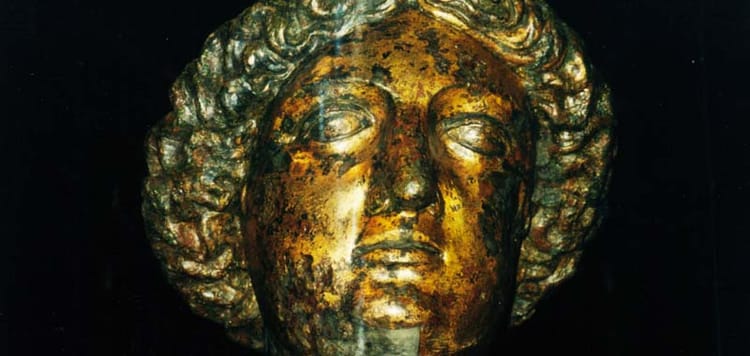On What Happened to the Richest Man in History

Contents: Herodotus and the Big Money Question | How the King Discovered the Best Fortune-Teller | Answer | Problem Way Too Soon | Oracle Made Me Do It | Appliance of Science
Herodotus's report on King Croesus
Of the seven oracles of note in the ancient world, famous King Croesus discovered the most accurate with a simple test. Cause and consequence of which features in Herodotus’ Histories of the 400s BCE.
His report on the richest man in history probably earned Herodotus headline act billing some nights in the Delphi city theatre when Homer and Hesiod weren't available.
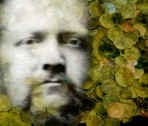
How King Croesus Discovered World's Best Fortune-Teller
Herodotus told of how the king sent seven messengers to the seven oracles, even to the far distant oracle of Ammon in Libya.
Ordered them to wait precisely a hundred days from an agreed date, and then to ask the priestesses at each oracle what Croesus was doing at exactly that predetermined moment.
The messengers received answers, sealed them and returned to the king.
On that precise hundred day marker, Croesus locked the door to everyone else.
In private he boiled tortoise and lamb in a brass pot, assuming the only ones who would know how the richest king in history spent his day were himself and the Hours, the Olympian goddess collective of knowing everything.
Only one messenger returned with the correct response.
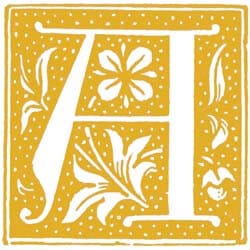
Trillion-dollar Question
King Croesus wanted a straight answer about his plans for expansion.
Croesus was rich, so wealthy a saying was coined for him. Sardis, Croesus’ capital was the place to be sometime around BC 500. His palace treasuries, room after room, hoarded high with gold and gemstones.
If any visitor questioned the enormity of his wealth the king took them to see those rooms and to every awed gasp asked: “Am I not the most enviable man alive?”
But Croesus had a dark cloud on his otherwise blue horizon: Cyrus the King of Persia. So Croesus sent his most trusted messenger to ask a question of the priestesses at the Oracle in Delphi.
His lamb and tortoise soup test proved they possessed genuine access to the Gods' awareness of how everything will be.
“What does Zeus think of great King Croesus’ intention to make war on the dangerous Persians?” asked Croesus' messenger to the Delphi oracle.
The king sent two gold coins to every Delphian for a favourable answer; and he received one, accompanied by mostly thanks from the city poor:
“You will destroy a great empire.”
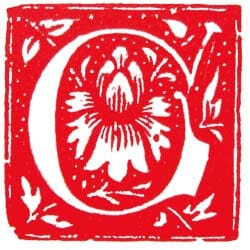
Oracle Made Me Do It
Croesus assembled an army commensurate with the will of the richest man in the world. Big and gaudy, but with mean-spirited pinches here and there.
On the eve of departure a guest of the king stared in awed wonder at the gold fortune spilling from room after room, he asked Croesus:
“Why invade the Persians? They are a poor people. They wear leather trousers. They drink no wine, grow no figs, and toil tilling a sterile soil. If you are defeated and the enemy comes back to Sardis and sees all this, they will never want to leave.”
“The Oracle told me my future,” replied the king.
Source: Histories Herodotus.
On the morning of his invasion departure King Croesus ordered his stylist to make certain his hair looked fabulous and marched out of the city gates.
Problem Way Too Soon
Herodotus reported on how, sooner than hoped along the march, the army halted. The deep river Halys barred their way. The king stomped the riverbank, up and down; frustrated.
Gold coins could not influence the fast-flowing water to change its course.
The king’s followers included a number of VIPs along for the experience. Among them a natural problem-solver named Thales, from Miletus town in Asia Minor. He saw a solution.
If nature prevented Croesus from achieving his objective, then nature must be overcome.
Croesus strutted the riverbank wondering which god or goddesses to ask for help. Thales appeared beside him and bent the knee. “Dig a channel upriver, loop it round the back of the army, great king,” he suggested. “The waters will be divided in two and shallow enough to cross.”
“The Gods be praised!” sniffed the king.
“It is science!”
Maybe the richest king in ancient history said, “Whatever.”
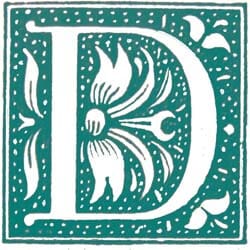
Appliance of Science
Thales measured and staked. The army dug, and Croesus crossed the divided river to attack his enemy.
Herodotus reported on how the Persians fought back so hard Croesus fled home to Sardis, followed by the blood-spattered remnants of his defeated army.
The Persians followed, smashed through to Sardis and placed Croesus on a bonfire, intent on b.rning him alive.
Collateral damage included destruction of the town of Miletus; its population carried away for sl.very.
When asked why he chose war, Croesus blamed the Gods.
Thales is sometimes referred to as the founding Father of Science.
Thank you for your company on this short introduction to myths and stories about the Olympian goddesses and gods. If you would like to know more about Margo Williams' experiences and suggestions for how to survive the hereafter, read this book. Now available from Amazon.

